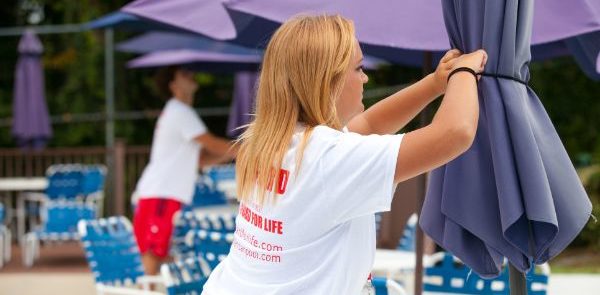What to Do During Summer Storms
Blue skies and perfect weather are ideal for pool days. However, that can’t be the case every single day. Summer storms happen. When they do, it’s your job as a lifeguard to keep everyone safe at your pool. There are different measures that you should take in different weather situations. Here’s what you need to do in each scenario.
Heavy Rain
Although heavy rain itself doesn’t offer any initial threats to swimmers, it makes scanning the pool more difficult for lifeguards. Because it’s harder for you to see, it’s harder to know when a swimmer may be in danger. The rule of thumb is that if you can’t see the bottom of the pool, swimmers need to take a break until the rain stops.
Thunder & Lightning
If you see lightning or hear thunder, determine how close it is first. Count to 30 between hearing thunder or seeing lightning. If occurrences happen with less than 30 seconds in between, stop all pool activities for 30 minutes.
Some pool facilities want to stop all pool activities at any sign of thunder of lightning. Familiarize yourself with your individual pool’s policies on closing the pool.
Hurricanes & Tornadoes
If a hurricane or tornado is forecast, you need to take precautionary measures to prepare the pool area. Close umbrellas, put away furniture, and store any loose equipment. Taking precautions prevents these items from blowing around in heavy winds and potentially harming someone. You should also familiarize yourself with any additional protocols that your individual pool may have in preparation for a large storm. Your supervisor will most likely close the pool if there is a serious threat.
Clear skies and sunny days are always what we hope for, but summer storms are bound to happen sometimes. It’s important to know what to do in these situations so that you’re able to stay calm and keep everyone safe. It’s a good idea to check the weather forecast throughout the week so that there aren’t too many weather surprises while you’re on duty. If you have additional questions about specific protocols during stormy weather, please speak with your supervisor. Ask questions now so that you’ll be able to jump into action when the time comes!

